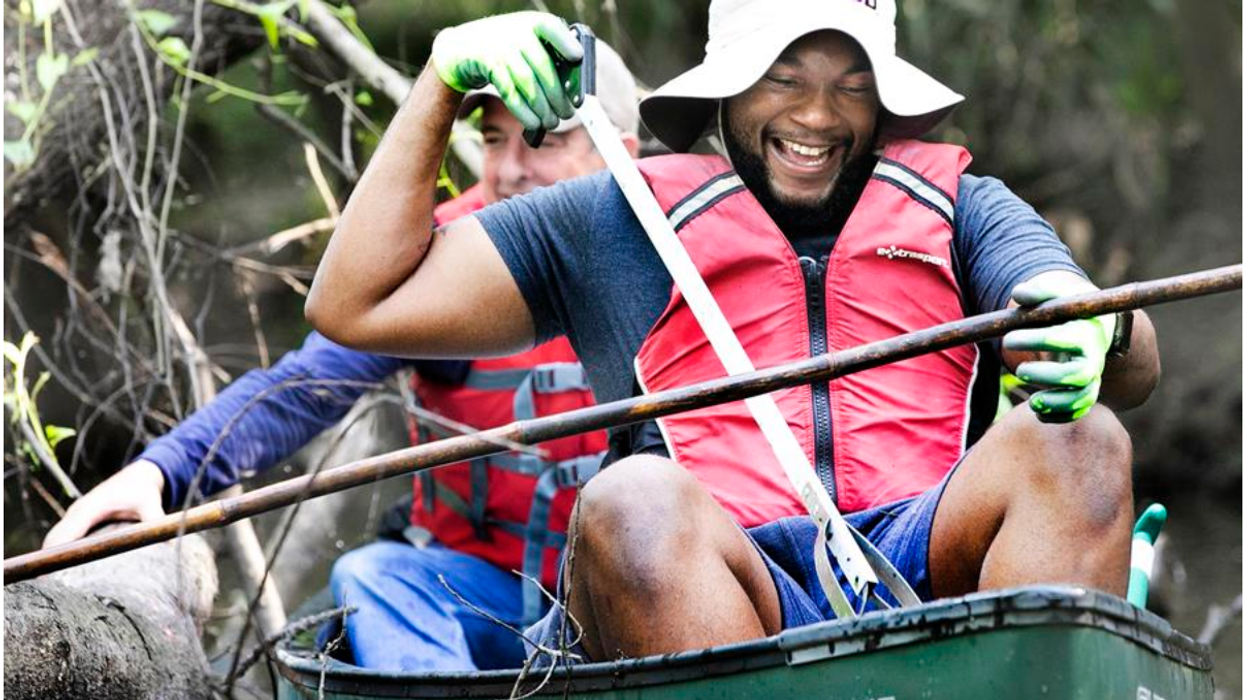Plata is communications manager for Weave: The Social Fabric Project.
The Aspen Institute’s Weave: The Social Fabric Project tackles the problem of broken trust that has left Americans divided, lonely and in social gridlock. Weave connects and invests in grassroots leaders stepping up to weave a new, inclusive social fabric where they live. This is the fourth in an ongoing series telling the stories of community weavers from across the country.
In 2020, Marie Constantin was walking her dog around Capitol Lake in Baton Rouge, a peaceful bit of nature near the Louisiana capitol, when she realized the shoreline was covered in trash. “I stood there and I was almost paralyzed because it was more litter than I’ve ever seen in my life,” she says.
She didn’t stay paralyzed for long. The next day, she grabbed a trash picker and began cleaning the shore. At an age when others retire, the 68-year-old woman kept going back every day, eight to 10 hours a day. “Sometimes I would go on a kayak to pick up litter and look for the outfalls, the place where the trash was flowing from,” says Constantin.
A professional photographer, she began sharing her progress on Facebook.
Little by little, neighbors started showing up. When a storm hit and thousands of pounds of trash flowed in, undoing much of the work they had accomplished over that year, more folks showed up to help. She estimates that up to 200 people have come out.
“We've picked up 26 tons of litter and four tons of tires,” says Constantin. “Businesses gave their employees time to volunteer. We had federal judges come out, we had little children come out. We had all kinds of people.” In the process, they’ve built friendships and a sense of community.
After cleaning up, a group often hangs out and shares a meal. Constantin’s social media posts capture the spirit. ”There's one photo where we created a human chain and dragged the bags up the hill, and you get a sense of the camaraderie,” she says.
The group noticed much of the litter flowing to the lake was single-use items, like chip bags and drinking cups. They traced those to trash trucks that were spilling small litter into the streets, where it washed into storm drains that led to the lake. They petitioned, marched and contacted the media, forcing the company responsible for trash pickup to spend several million dollars upgrading its truck fleet.
Now, the group is petitioning the city to implement a stormwater management system, which Constantin knows is an uphill battle that might take years. To coordinate these efforts, Constantin founded the Louisiana Stormwater Coalition. Now that people are connected and realize they can create change, anything feels possible. And she says neighbors are starting new projects to strengthen their community.
To see more stories like this, subscribe to Weave’s weekly newsletter.




















